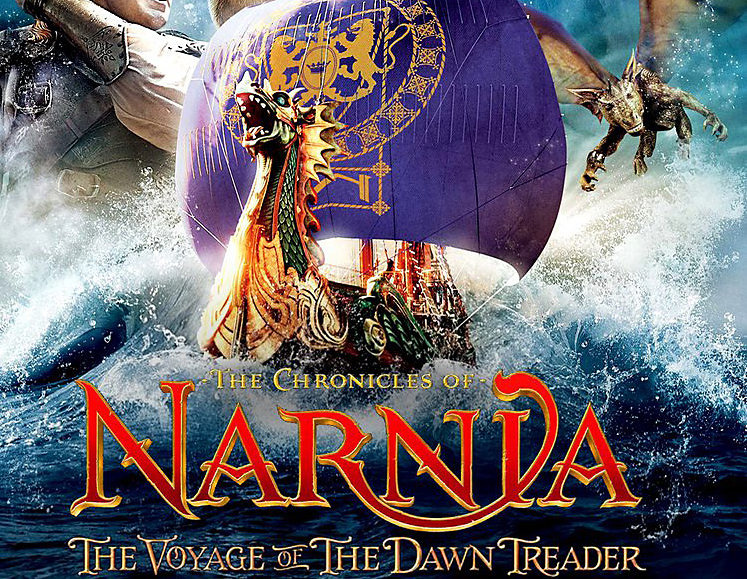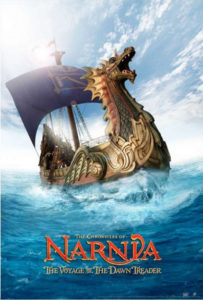
Growing up, C.S. Lewis was my hero. My dad used to read The Chronicles of Narnia to me every night before bed, and it was these stories, with their colorful characters and enchanting plots, that first sparked my interest in writing stories of my own. So when I learned that my favorite story from the series, The Voyage of the Dawn Treader, was to be adapted into a movie, I was ecstatic.
I made the trek to the theater, along with thousands of other Narnia fans, and sat in breathless anticipation as the opening credits rolled. However, my excitement soon morphed into frustration. The changes the filmmakers made to the plot caused it to seem rushed and incoherent, and some of the characters I remembered most vividly from the book were either completely changed or left out altogether. I left the theater in an indignant huff, taking solace in the fact that my hero Lewis was no longer alive to witness the mess that modern media had made of his masterpiece.
The statement “the book was better than the movie” has become such a common reaction to movie adaptations that it causes many to roll their eyes and groan. However, according to a recent study, this opinion is held by t he vast majority of readers and movie-watchers. The Washington Post cited a study that compared the ratings of over 800 books and their movie adaptations, finding that “books had a higher rating than their movie versions 74 percent of the time.” Similar findings were reported by the Short List, which found that just under 70 percent of books scored higher ratings than their movie counterparts.
he vast majority of readers and movie-watchers. The Washington Post cited a study that compared the ratings of over 800 books and their movie adaptations, finding that “books had a higher rating than their movie versions 74 percent of the time.” Similar findings were reported by the Short List, which found that just under 70 percent of books scored higher ratings than their movie counterparts.
But are ratings a good indication of whether a book is truly better than a movie, or are these results skewed the ravings of angry bookworms (like me) who’s unrealistic expectations could never be met? Aren’t books and movies like apples and oranges? Let’s look at the advantages each form of media brings to the process of storytelling.
On the surface, it would appear that, as a medium, movies might have an upper hand over books when it comes to conveying the depth of a story. Movies, after all, are a visual medium that allow the viewer to be instantly plunged into a scene. Actors have the advantage of voice inflections, which the reader must fill in for themselves when reading a book. Movies also have the advantage of music to add emotion or tension. However, movies are more limited than you might think, and it is these limitations that usually cause an audience to favor a book over its movie adaptation.
One of the biggest constraints on the effectiveness of a movie’s storytelling is time.
“Most movies do their thing in one and a half to three hours,” says Rich Santos, a writer for B&NReads. “A book is edited and crafted, but the writer is still working within an unlimited time canvas.”
Not only can a book go into more detail because of this lack of time constraint, but the reader will also spend more time with a book, getting to know the characters and their struggles slowly. The sheer amount of time it typically takes to make it through a book will cause the story to stick with the reader longer.
Another advantage books have over movies is that a book allows the reader to hear and experience the character’s innermost thoughts and fears through exposition. One of the major limitations of a movie is it’s obligation to tell the story through dialogue and body language alone, where a book can tell you exactly what a character is thinking at any given time.
Although describing a book as “magical” might seem a little cliche, there really is something special about the depth that can be experienced through the written word, something that is difficult, and sometimes impossible, to translate to the screen. I enjoy seeing a good movie, but there’s still nothing better than a well-written book.